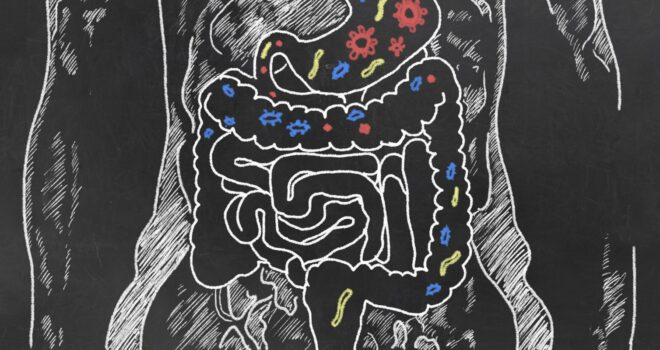How does a vegetable, once eaten, benefit your health? Let’s follow a vegetable as it travels through the body and learn more about how the body uses it.
Once eaten, the vegetables play a role in elimination
Cells quickly feel the benefit of the high water content in vegetables, once eaten. Water is actively diffused throughout the body, making a major contribution to our daily needs. Notably, it plays a role in hydrating your skin. The soluble fiber in vegetables has numerous functions: it plays a role in satiety, forms the vital ballast for regular bowel movements, and nourishes the intestinal flora (the bacteria in our intestines). The intestinal flora weighs between 2.2 and 3.3 pounds and controls our immune system (90% of immune system cells are thought to be concentrated in the digestive tract) and our natural defenses.
MICROnutrients, BIG effects!
As for vitamins and minerals, they are absorbed during digestion into the blood. From there, they reach their target cells:
- Vitamin C protects the corneas, connective tissue, and the nervous system, reduces fatigue, facilitates iron absorption, and stimulates immune system cells.
- The body transforms provitamin A into vitamin A according to its needs. The vitamin then plays an active role in promoting growth and skin, tissue, vision, and immune system health.
- Vitamin B9 helps all the cells throughout the body that are growing or renewing themselves. This vitamin is particularly important for pregnant women for fetal development, for growing children, and for convalescents.
- Potassium plays a role in nervous system and muscle function and in blood pressure.
- Magnesium reduces fatigue and facilitates protein synthesis, muscular contraction, nerve impulse transmission, and bone and teeth health.



 Fava beans
Fava beans  Sorrel
Sorrel  Vegetable garden: growing rocket
Vegetable garden: growing rocket 









